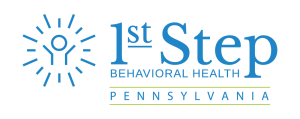Jump to a Section...
What is Dual Diagnosis Treatment?
Dual diagnosis is the occurrence of both a substance abuse disorder and a mental health disorder at the same time. The term co-occurring disorders may be used interchangeably. Both substance abuse and mental illness affect the brain and how it processes information.
In some cases, addiction occurs when a person attempts to self-medicate and alleviate the symptoms of mental illness. In other cases, substance abuse can exacerbate underlying mental illness or it may develop following ongoing use and changes in brain chemistry. There is not always a clear indication of which came first, and one does not necessarily cause the other, but it is common for both conditions to occur together.
Co-occurring mental health disorders may include depression, anxiety, schizophrenia, personality disorders, bipolar disorder, post-traumatic stress disorder, or attention-deficit hyperactivity disorder (ADHD). Only a qualified medical professional can accurately diagnose co-occurring disorders.
When someone struggles with both addiction and mental illness, it can make it more difficult for them to achieve recovery on their own. However, with the help of trained professionals and a targeted dual diagnosis treatment program, those suffering can develop the strategies and skills necessary to create a healthier lifestyle.
Is dual diagnosis addiction treatment different when substance abuse and mental illness are both present?
When addiction and mental illness are both present, clients benefit most from a dual-diagnosis treatment program that addresses both conditions. It is important to find a rehab center that is trained in treating the specific mental illness present, as not all facilities handle all types of dual diagnosis cases. Treatment will vary depending on the type and severity of both the addiction and the mental illness. A comprehensive evaluation can enable staff to better understand the scope of the situation and how to more effectively plan treatment.
While mental health is often addressed in addiction treatment, dual diagnosis programs are more intensive. Sometimes depression or anxiety is a result of substance use and may resolve themselves after detox and treatment. However, when a mental illness exists independently of substance use, it may require medication or more targeted therapies for proper management. It is important that clients understand how their mental illness and addiction impact one another so that they can develop an individualized plan for coping with these conditions simultaneously. Addiction and mental illness should be treated together instead of separately because of how closely they may be tied to one another. Treating one condition but not the other may increase the risk of relapse.
Common Symptoms of Dual Diagnosis Addiction Cases
Symptoms of dual diagnosis cases can vary greatly depending on the mental illness as well as the type of drug addiction. The severity of each can also affect the symptoms that a person may experience. Due to the extreme diversity that can be present, it is important that a licensed medical professional conduct the appropriate evaluation and assessments to determine the correct diagnosis. A person with a dual diagnosis will have symptoms of a substance use disorder and a mental health disorder with some symptoms overlapping and others that are independent of one another.
Common symptoms of addiction may include:
- Increased tolerance to drugs or alcohol
- Experiencing withdrawal symptoms between use
- Increased anger, agitation, or irritability
- Sudden changes in mood or behavior
- Increased secrecy, isolation, or defensiveness
- Risky decision-making or behaviors
- Inability to control one’s drinking or drug use
Common symptoms of mental illness may include:
- Extreme mood changes
- Confusion
- Difficulty concentrating
- Prolonged periods of sadness or feelings of low self-worth
- Hallucinations
- Heightened alertness or fear
- Intense worry
- Behavior that is out of the ordinary
When signs of both conditions appear, it can be an indicator that the person may have co-occurring disorders and dual diagnosis treatment is necessary.
Dual Diagnosis Treatment and Therapies at 1st Step
As a dual diagnosis drug rehab, 1st Step Behavioral Health provides clients with comprehensive treatment and therapies to support them in recovery. Several levels of support are provided as patients progress in their recovery and transition back into the community. Substance abuse treatment options include:
- Inpatient
- Partial Hospitalization
- Outpatient
- Intensive Outpatient
Many clients with a dual diagnosis addiction benefit from beginning in an inpatient treatment program where they are monitored round-the-clock and have access to medical professionals, therapists, and staff to help them work through the challenges they face. They will develop skills and strategies to cope with both the impact of addiction as well as mental illness and how it affects their life. Treatment includes a combination of:
- Individual therapy
- Group therapy
- Relapse prevention techniques
- Social skills building
An individualized dual diagnosis treatment plan is created that aligns with each client’s unique needs and goals. Clients progress at their own pace and are educated about addiction, recovery, and relapse prevention to develop skills that best support their treatment and recovery. Multiple therapeutic modalities are used depending on the individual client’s needs. 1st Step works closely with clients to provide them with the help and support necessary to boost their success in recovery. Every client is different; therefore, every treatment plan is different.
Dual Diagnosis Treatment for Drug Addiction and Mental Health Disorders
Studies have found that around one-third of people with mental illness experience substance abuse, and around one-third of people who misuse alcohol and more than one-half of people who misuse drugs have a mental illness. Having a dual diagnosis may increase the severity of both conditions. However, dual diagnosis treatment for drug addiction and mental health disorders is available and can be the first step in establishing a healthier lifestyle. If you or someone you love is struggling with a dual diagnosis, contact 1st Step today to find out more about how we can help you get on the road to recovery. Contact us today by calling or texting (844) 549-1307.


